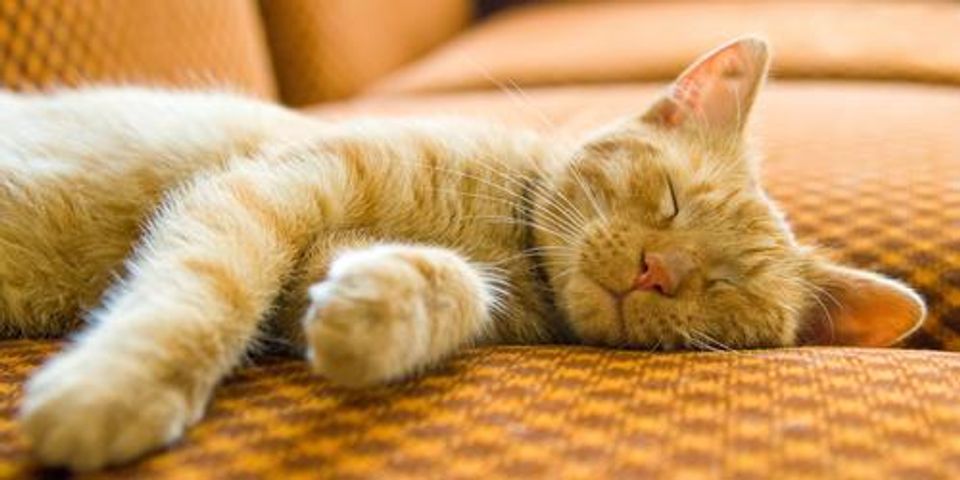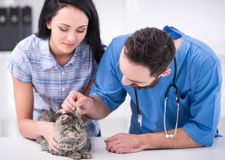Veterinarian Lists 6 Signs of Heartworm Disease in Cats

If your cat has been acting different lately, whether it’s lethargic or simply irritable, schedule an appointment with your veterinarian to have your feline companion checked out. While it could be something small, there are a number of conditions that can negatively impact your furry friend’s quality of life—such as heartworm disease. This condition is caused by the parasite heartworms and can cause severe damage even in early stages. If you’re not sure why your pet is acting strange, look out for the following six symptoms veterinarians say are indicators of heartworm disease in cats.
6 Signs of Heartworm Disease in Felines
1. Coughing & Gagging
 There are a number of causes of coughing and gagging in cats, including bronchitis or pneumonia. However, when a cat develops heartworm disease, the heart becomes enlarged and can press on the esophagus, causing frequent coughing or gagging. If your cat has this symptom and it doesn’t resolve in a few days, schedule an appointment with the veterinarian.
There are a number of causes of coughing and gagging in cats, including bronchitis or pneumonia. However, when a cat develops heartworm disease, the heart becomes enlarged and can press on the esophagus, causing frequent coughing or gagging. If your cat has this symptom and it doesn’t resolve in a few days, schedule an appointment with the veterinarian.
2. Lethargy
When a cat has heartworm disease, they become weakened by the parasites invading their system. If your cat suddenly becomes inactive, loses interest in playtime or can’t perform normal daily tasks, consider having them evaluated by a professional.
3. Loss of Appetite & Weight Loss
Another indicator a pet is dealing with heartworm disease is a sudden loss of appetite or accelerated weight loss. As the animal becomes more infected with heartworms, their organs will begin to function erratically, thus reducing their appetite.
4. Bulging Chest
If your cat’s chest begins to bulge or look swollen, chances are they’re dealing with heartworms. As the heartworms mature and weight loss sets in, the pet will have a bulging chest compared to the other areas of their body. This can also be due to a fluid buildup from the parasites’ presence.
5. Difficulty Breathing
In addition to a bulging chest, the buildup of fluid can also cause your pet to have difficulty breathing. If you notice your pet getting out of breath easily or having difficulty taking a breath, schedule an appointment with the veterinarian as soon as possible.
6. Collapse
One of the most serious symptoms of heartworm disease in felines is collapsing. Once the disease has spread and began impacting each system of the body, the blood will have a difficult time circulating, and this can result in collapse. This is considered an emergency, and your pet should be taken to a professional right away.
Westside Veterinary Hospital in Statesboro, GA, has provided preventative and diagnostic care to small animals for the last 25 years. In addition to typical veterinary care, they also offer 24-hour services, pet boarding, and nutritional advice. If you’re looking for a veterinarian for your furry companion, consider calling this team at (912) 489-1998 to set up an appointment. You can learn more about the services they provide by visiting their website.
About the Business
Have a question? Ask the experts!
Send your question

